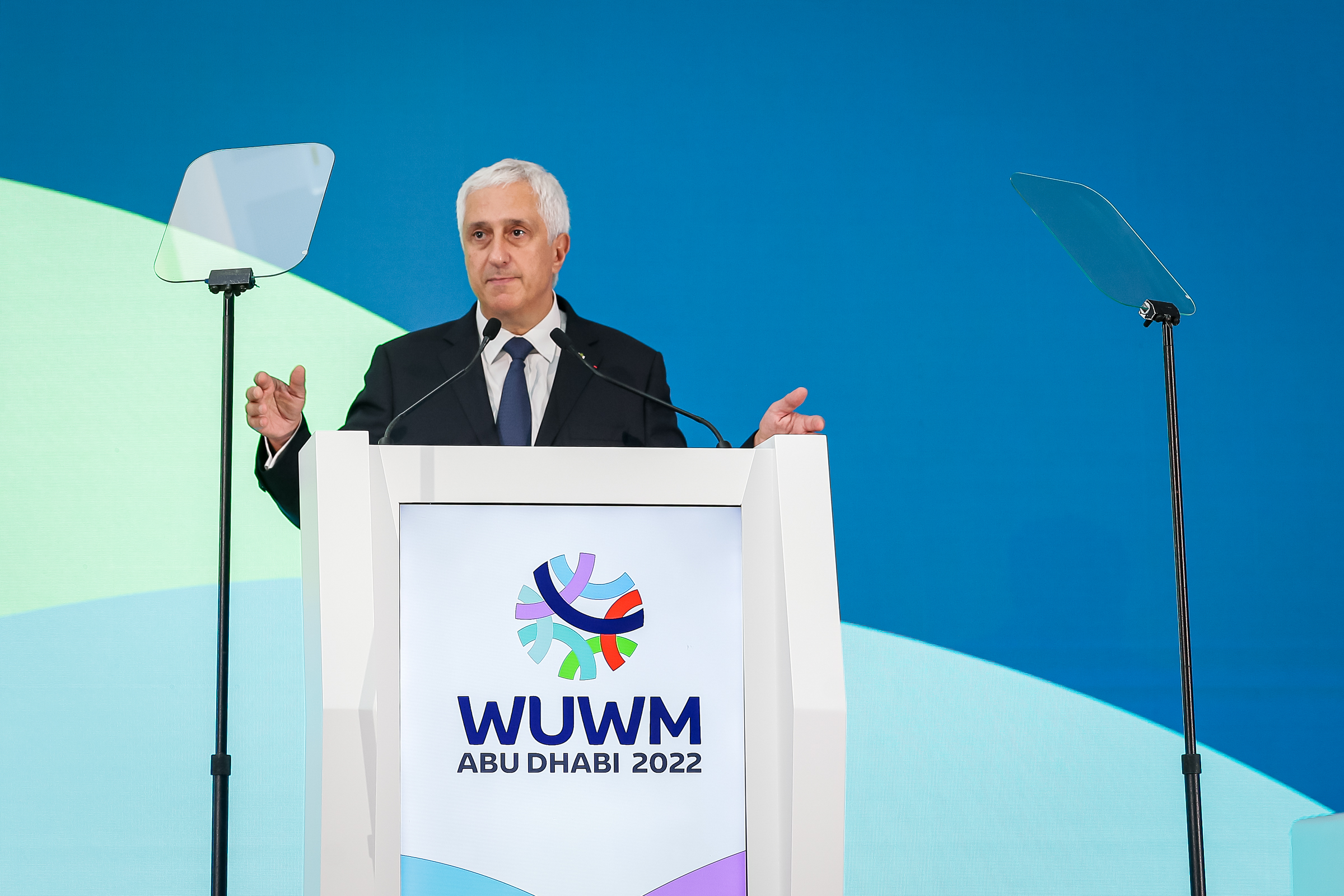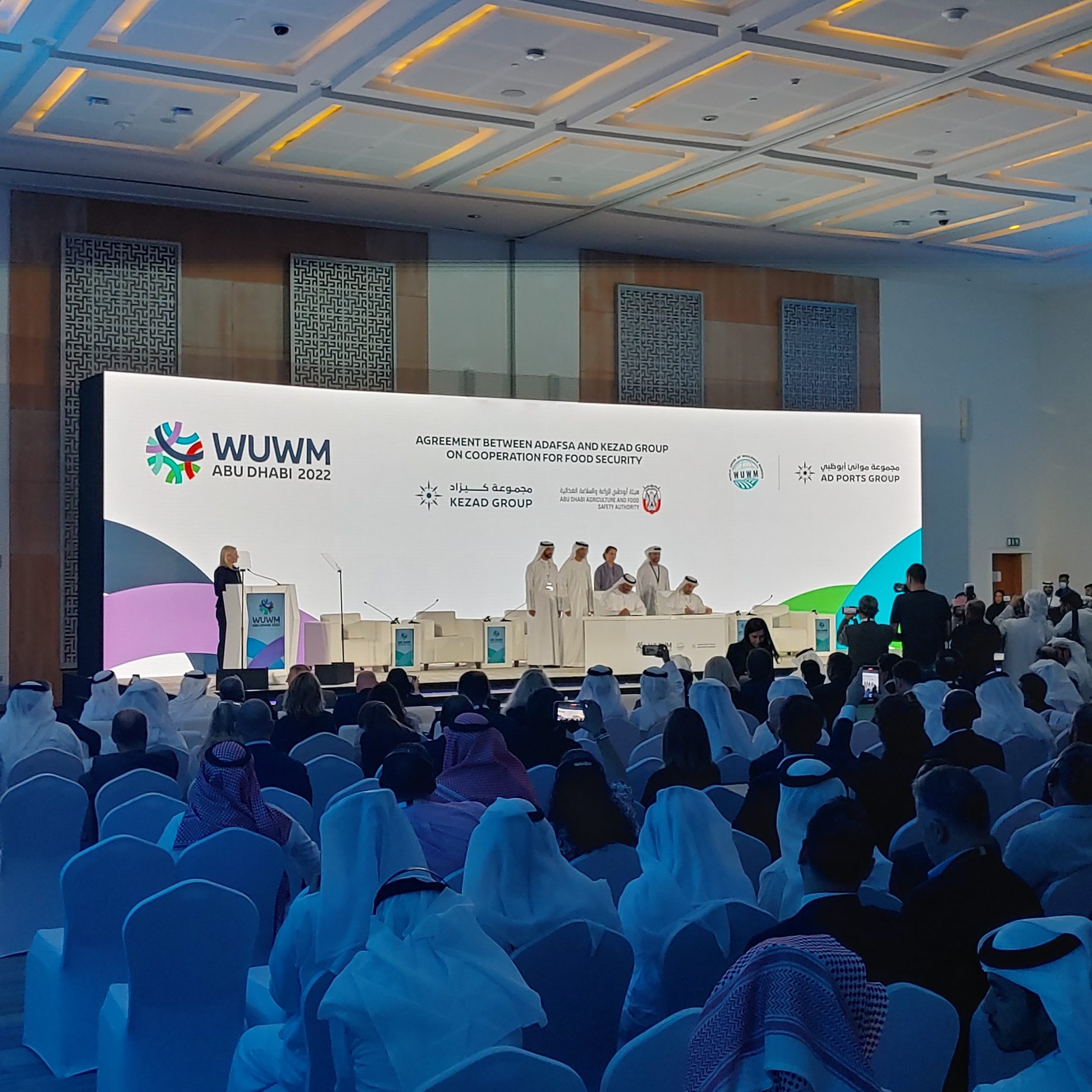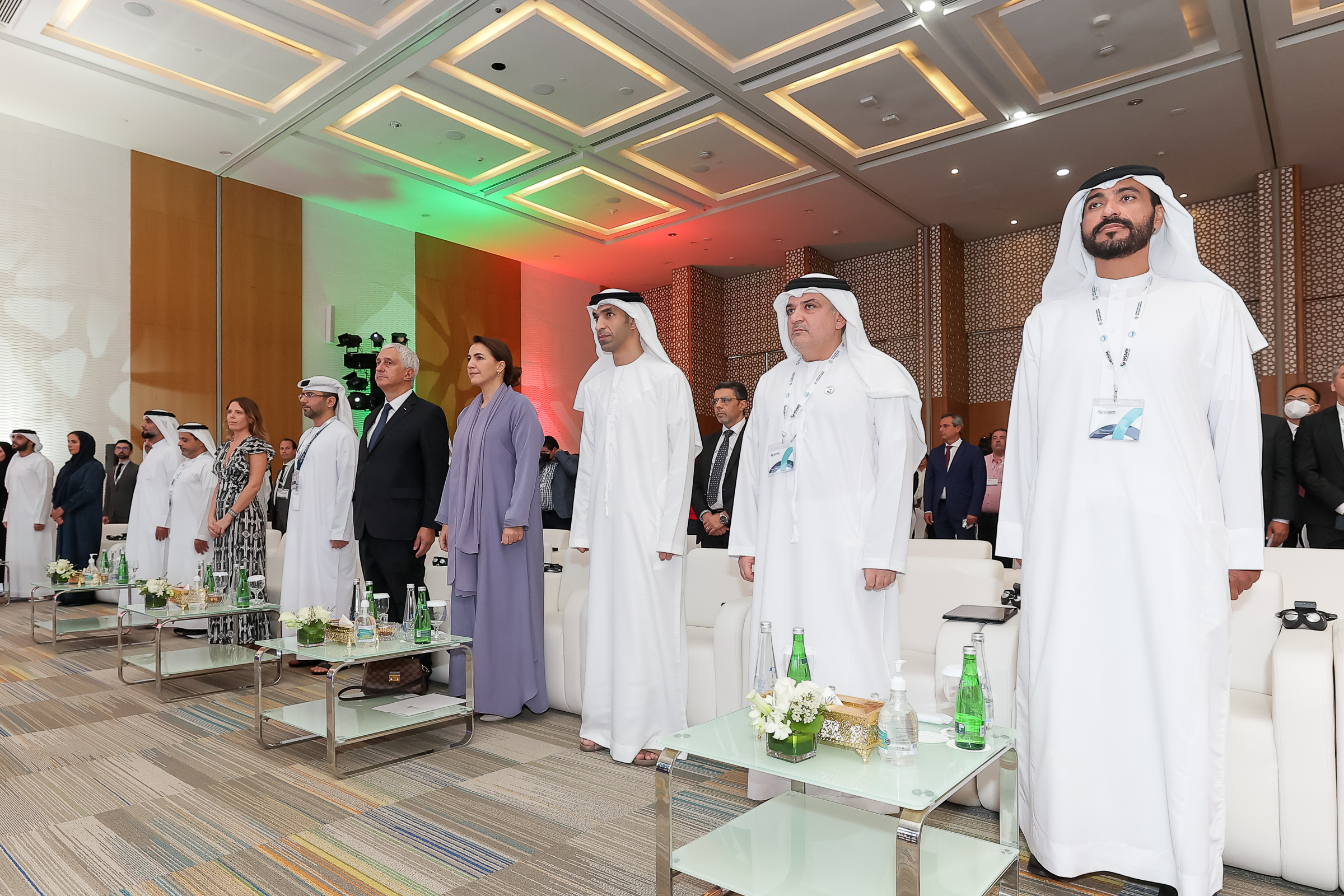Abu Dhabi, the future food hub
Over 500 key stakeholders from the fresh food sector were in attendance at the WUWM 2022 Conference in Abu Dhabi held in the Abu Dhabi National Exhibition Centre on 20 October 2022, profiling the remarkable work being undertaken to support food security by the World Union of Wholesale Markets. The event, taking place in the Middle East for the first time, was a major meeting for WUWM and attracted leading fresh food producers, retailers, food logistics companies, air and maritime freight providers and startups, as well as local, national and regional government representatives and policymakers.
Global food security and building a new sustainable “food architecture”
The meeting, taking place under the theme “Global food security in the XXI Century: Risks, challenges and solutions to ensure resilient and sustainable fresh food supply chains”, allowed industry leaders to work together on viable solutions to current concerns regarding the future of global food security. UAE organisations represented at the event as partners and speakers included the UAE Ministry of Climate Change and Environment, Abu Dhabi Department of Economic Development (ADDED), AD Ports Group, The Department of Culture and Tourism – Abu Dhabi, Abu Dhabi Agriculture and Food Safety Authority (ADAFSA), Ghassan Aboud Group, Etihad Cargo and SILAL.
Stephane Layani, chairperson of the World Union of Wholesale Markets said: “We are delighted to see such strong UAE representation at WUWM Abu Dhabi 2022, reflecting the important role that our hosts are playing in support of global food security. The event provided a key opportunity for all the major actors involved in the global fresh food supply chain. Working together, we will be able to build new sustainable ‘food architecture’ from the farm to the fork that can ensure better production, better supply chains, better nutrition, a better environment, and a better life for all.”
Kezad free zone: the largest industrial zone and a future regional food hub
The Khalifa Industrial zone of Abu Dhabi is the largest economic zone in the Middle East with 550 sq km. Today, 1,750 firms are established in twelve different economic zones, mainly the metals, plastics, automation, retail and logistics, life sciences, oil and gas, high-tech, food and agtech groupings. As food agriculture technologies are a priority sector for development, Abu Dhabi authorities are investing in order to turn the city into a major regional food hub. About 60.7 million tons of agrifood products are handled there for the Gulf region. A major food hub is due to open its doors in 2024, a joint venture between Kezad free zone and the Ghassan Aboud Group.
Keynote speakers
The event included H.E. Mariam bint Mohammed Almheiri, Minister of Climate Change and Environment; H.E. Mohamed Ali Al Shorafa, Chairman, Abu Dhabi Department of Economic Development (ADDED); Abdullah Humaid Al Hameli, Chief Executive Officer – Economic Cities & Free Zones, AD Ports Group; Qu Dongyu, Director-General, Food and Agriculture Organization of the United Nations (FAO), and Maimunah Mohd Sharif, Under-Secretary-General of the United Nations and Executive Director, UN-Habitat. Abdullah Al Hameli, CEO of Economic Cities & Free Zones, AD Ports Group, which held the event, said: “The WUWM Conference, which was a key meeting of the global food sector, provided an important platform to highlight the advanced infrastructure being put into place.”






